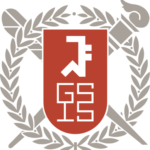Migration and Women: The Lives and Experiences of Marriage Migrant Women
Migration and Women: The Lives and Experiences of Marriage Migrant Women
Marriage migrant women have been, firstly, considered as part of a solution to alleviate the ultra-low fertility situation in South Korea. As South Korean society still remains to be in the phase of low-fertility, we contemplate that marriage itself is not enough to boost the fertility rate. Accordingly, we suggest that we need different approaches to tackle low-fertility issues. First, following the trend that most countries combine the low-fertility issue with the aging issue, we consider the low-fertility and aging issues together. Secondly, we connect these two issues with the perspective of ‘care work’.
Childcare and Elderly care in South Korean society became an important agenda, especially with the advent of COVID-19. However, childcare and elderly care provided by marriage migrant women were not given serious attention, compared to their abusive marriage situations, a problematic marriage brokerage system that commodifies women, and the assimilation of these women into South Korean society under the name of ‘multicultural family’. This project seeks to explore the childcare and elderly care conditions of these marriage migrant women. How their transnational family composition is divided and/or connected, how their childcare is prioritized over their elderly care, and how their elderly care is skewed toward the patriarchal line of the in-law but not their own elderly parents will be explored. This project tries to follow the stories of marriage migrant women on their personal and the transnational care network experiences and to explain and analyze the realities and the meaning of their care work lives.
We are planning to do qualitative interviews of 10-20 marriage migrant women in South Korea. We plan to visit women living not only in Seoul but in other regions of South Korea. The research team will share the findings with the general public through various means including a forum and publication of research papers.




